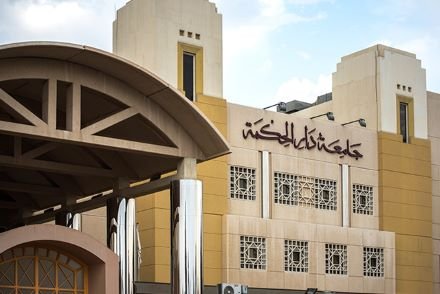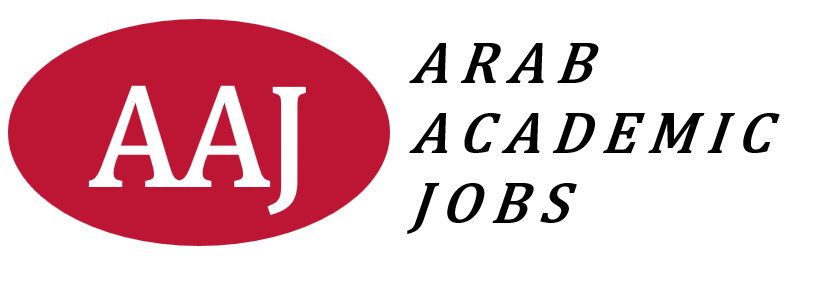
Dar Al-Hekma University
About Company
Dar Al-Hekma University stands as a leading private institution in Jeddah, Saudi Arabia. Established in 1999, it has evolved from a women’s college into a comprehensive university offering diverse programs. The university maintains high international standards while focusing on developing future leaders and entrepreneurs. With its commitment to academic excellence and innovation, Dar Al-Hekma presents compelling opportunities for academic professionals seeking meaningful careers in Saudi higher education.
The university’s location in Jeddah provides access to a dynamic educational environment. Its focus on quality education and student development creates an ideal setting for educators passionate about making a difference. The institution’s growth trajectory and commitment to innovation make it an attractive destination for academic talent.
Institutional Profile and Accreditation
Dar Al-Hekma University operates with a strong focus on quality education and institutional excellence. The university is fully licensed and recognized by the Saudi Ministry of Education. It maintains international accreditation standards through recognized accreditation bodies.
The university leadership under its current president emphasizes academic quality and innovation. The institution has developed a strong research profile with significant publication output. Community engagement remains a core focus, with thousands of service hours contributed annually. This reflects the university’s commitment to social responsibility and practical impact.


Academic Structure and Programs
The university organizes its academic offerings through four specialized schools. These schools developed through international collaborations with educational consortia. Most degree programs are taught in English to prepare students for global opportunities.
The School of Business and Law offers undergraduate programs in banking, finance, and marketing. Law and international relations complete the business offerings. Graduate programs include MBA and specialized law degrees. These programs focus on practical business education and legal expertise.
The School of Design and Architecture provides creative programs including architecture and interior design. Fashion design and visual communication programs nurture artistic talent. Graduate architecture programs offer advanced design education. These programs combine technical skills with creative development.
The School of Health, Behavioral Sciences and Education covers psychology and speech sciences. Health programs address growing sector needs. Graduate programs include speech-language pathology and behavior analysis. Educational leadership programs complete the health and education offerings.
The School of Engineering, Computing and Informatics offers technology-focused programs. Computer science and cybersecurity address digital security needs. Information systems programs focus on business technology integration. Graduate programs provide advanced technical education.
Student Experience and Admissions
The university hosts a diverse student community representing numerous nationalities. The acceptance rate reflects selective admissions standards while maintaining accessibility. The student body benefits from international perspectives and cultural exchange.
Admission requirements include strong academic credentials from secondary education. Minimum grade thresholds ensure student preparedness. English proficiency requirements maintain language standards. Graduate applicants need relevant undergraduate qualifications. Professional experience enhances graduate applications.
Academic support systems ensure student success through comprehensive advising services. Tutoring laboratories assist with mathematics and writing challenges. Workshops develop essential study skills and time management. These resources help students achieve their academic potential.
Career Development and Outcomes
The university demonstrates strong graduate employability rates exceeding most institutions. The curriculum emphasizes critical thinking and decision-making skills. These competencies prepare students for regional and global job markets. Industry connections enhance employment opportunities for graduates.
Professional development integrates practical skills with theoretical knowledge. Industry partnerships provide real-world learning experiences. Career services support student transition to professional roles. Employer relationships create employment pathways for graduates.
Why Choose Dar Al-Hekma University?
The university offers several advantages for academic professionals. Its reputation as a well-established private institution ensures stability. The non-profit status focuses resources on educational quality rather than shareholder returns. The supportive environment fosters professional collaboration and growth.
The medium-sized institution creates a strong sense of community. Integrated campus facilities enhance working relationships. Collaborative opportunities exist across disciplines and departments. This environment supports both teaching and research activities.
Strategic institutional goals emphasize educational quality and innovation. The five-year plan focuses on creativity and societal impact. Opportunities exist to contribute to institutional growth and development. Professional input helps shape academic direction and innovation.
Research and Innovation
The university maintains a growing research profile with increasing publication output. Research activities address practical challenges and theoretical questions. Faculty members receive support for scholarly activities and publications. Collaborative research opportunities exist within and across institutions.
Innovation focuses on educational methods and curriculum development. Technology integration enhances teaching and learning experiences. Community-based projects connect academic work with social needs. These initiatives provide meaningful engagement opportunities for faculty.
Professional Environment
The university provides a supportive professional environment for academic staff. Competitive compensation packages reflect qualifications and experience. Professional development opportunities support career advancement. Research funding enables scholarly activities and conference participation.
The work environment emphasizes collaboration and innovation. Modern facilities support both teaching and research activities. Administrative services reduce non-academic burdens on faculty. This allows focus on core academic responsibilities and student engagement.
Application Process
Position requirements typically include relevant terminal degrees in specialized fields. Teaching experience at the university level is valued. Research credentials demonstrate scholarly capability and potential. Professional experience enhances practical teaching relevance.
The application process involves submitting professional documentation through university channels. Curriculum vitae and cover letters outline qualifications and interest. Teaching philosophy statements demonstrate educational approach. Research statements highlight scholarly interests and achievements.
Selection may include interviews and teaching demonstrations. These assess fit with institutional culture and teaching capabilities. Reference checks verify qualifications and professional background. The process ensures mutual fit between applicants and the institution.
Dar Al-Hekma University offers rewarding opportunities for academic professionals. The institution’s commitment to quality education ensures meaningful work. The focus on student development creates impactful teaching experiences. Strategic location in Jeddah provides cultural and professional advantages.
The university’s growth trajectory suggests expanding opportunities for contribution. Institutional stability supports long-term career planning. Professional development opportunities enhance career advancement potential. Collaborative environment fosters meaningful academic relationships.

